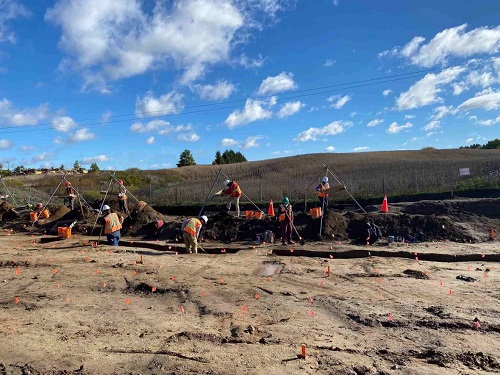 Monday, September 30, 2024
Monday, September 30, 2024  Monday, September 30, 2024
Monday, September 30, 2024 
Carbonized seeds, pottery and spearheads are among thousands of Indigenous artifacts that have been discovered at a road construction site in Kitchener over the past few months, according to the company in charge of the project.
Work slated to begin along Fischer-Hallman Road in the spring was put on hold after evidence of a longhouse and a village, as well as nearly 1,000 artifacts, were discovered in the area.
Wood PLC, the engineering and environmental consulting company leading a stage four archeological assessment ordered by the Region of Waterloo, said they’ve now excavated 35,000 artifacts, 25 features and an additional 20 longhouse post moulds as of October 9.
“A feature would be a settlement pattern, it provides you evidence of the actual human activity,” explained Barbara Slim, archaeological lead with Wood PLC. “In this case, it would have been a hearth, a fire pit.”
The company also said it found evidence of walls, posts and storage pits. A list of artifacts discovered so far includes chipped stone, pottery, animal bone remains, stone tools, arrowheads and knives.
Projectile points, like the arrowheads, date back the Late Archaic and Late Woodland time periods, said Slim, while the pottery is typical of a Late Woodland Middle Ontario Iroquoian village site.
The carbonized corn and bean seeds are “very rare,” she said, and date back to sometime between 1300 and 1600.